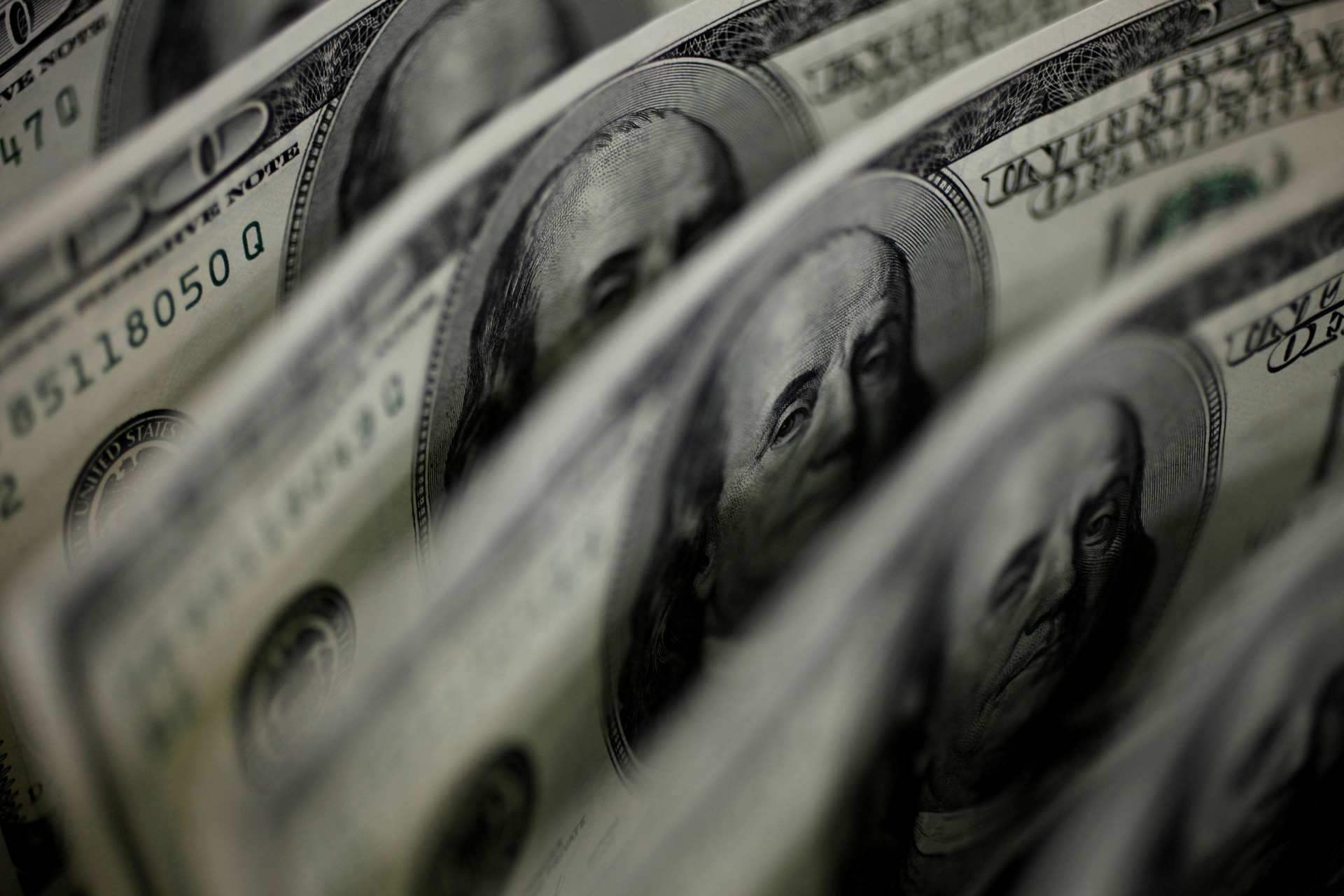In 2020, the share of the dollar in world reserves decreased from 60.7 to 59%.
The achieved figure was the lowest since 1995.
This is evidenced by data from the International Monetary Fund (IMF).
As follows from the materials of the organization, states increasingly prefer to keep money in the currencies of the eurozone, Japan and China.
So, from January to December, the share of the euro in global reserves increased from 20.6 to 21.2% - the highest level since 2014.
At the same time, the share of the Japanese yen exceeded 6% for the first time in 20 years, while the share of the Chinese yuan reached the highest level ever recorded (since 2016) - 2.3%.
According to Valery Emelyanov, an analyst with Freedom Finance, one of the reasons for the observed dynamics was the sharp weakening of the dollar on the international market in 2020.
So, from January to December, the corresponding DXY index dropped by 3.7% - to 89.94 points.
Since the beginning of 2021, the indicator has recovered to the level of 93 points, but at the same time it is still noticeably below the levels of 2019.
“We saw that last year the dollar fell significantly against the euro, yen and yuan.
This led to an increase in the dollar value of reserves denominated in these currencies.
Accordingly, their share increased, while the share of the American dollar, on the contrary, fell, "Emelyanov explained.
In addition, experts interviewed by RT associate the decline in the share of the dollar in global reserves with the actions of the US Federal Reserve.
In 2020, against the backdrop of the coronavirus pandemic and the collapse of the American economy, the Fed began printing currency in unlimited quantities and pumping money into the country's financial system by purchasing government bonds.
According to experts, an increase in the money supply in the economy should help to increase the rate of GDP growth.
At the same time, it was the Fed's policy that provoked a weakening of the dollar in the world market and at the same time heightened investors' fears about the future prospects of the US national currency.
Pyotr Pushkaryov, chief analyst of TeleTrade Group, told about this in an interview with RT.
“This kind of unsecured money supply undermines the foundations of a dollar-based financial system.
Having a monopoly on the printing press, it is impossible to constantly and practically uncontrollably churn out decisions on new and new rounds of money emission, without devaluing the dollar itself, "Pushkarev emphasized.
In general, as the specialist noted, the decline in the share of the American currency in world reserves is associated with the global trend towards de-dollarization.
According to the IMF, back in 2015, the US national currency occupied about 66% of international reserves.
At the same time, over the next 10-15 years, the value may fall below the 50% mark, Pushkarev suggested.
“The process itself is unstoppable, and there are two main factors reducing interest in the dollar: the Fed's“ dollar printer ”operating at full capacity, as well as the frequently applied extraterritorial sanctions, combined with the unpredictability of the US political line.
This potentially poses a threat to the holding of dollar reserves for many countries that are not among the friends and allies of the United States, ”the analyst added.
On the same wave
It is noteworthy that Russia is also following the global trend and is systematically abandoning the dollar in the formation of gold and foreign exchange reserves.
According to the latest data from the Central Bank, from January 2018 to June 2020, the share of the dollar in the international reserves of the Central Bank more than halved - from 45.8% to 22.2%.
At the same time, the share of the euro increased by almost a third - from 21.7% to 29.5%, and the yuan - fourfold, from 2.8% to 12.2%.
Moreover, in February 2021, the Russian Ministry of Finance transferred 15% of the National Wealth Fund's resources in yuan and another 5% in Japanese yen.
At the same time, the shares of dollars and euros decreased from 45 to 35%.
“The key reason is geopolitical risks.
Sanctions rhetoric from the United States is constantly on the international agenda, so we are taking steps to protect our economy, "Anatoly Aksakov, chairman of the State Duma Committee on the Financial Market, said in an interview with RT.
A similar point of view was previously voiced by Russian Foreign Minister Sergei Lavrov.
In March, in an interview with Chinese media, he spoke about the need to move away from the use of Western-controlled international payment systems.
At the same time, the Foreign Minister recalled that the United States declares its task to limit the possibilities for the technological development of Russia and China.
“Therefore, we need to reduce sanctions risks by strengthening our technological independence, by switching to settlements in national currencies and in world currencies, alternative to the dollar,” Lavrov stressed.
Reuters
© Yuriko Nakao / File
According to Anatoly Aksakov, within the framework of de-dollarization, Russia is actively increasing the use of national currencies in trade with its partners.
For example, among the states of the Eurasian Economic Union, the share of settlements in national currencies is about 75%.
“Now the US share in the world economy is gradually decreasing.
We see how the influence of the same fast-growing India and China is increasing.
Well, we, of course, are also trying to build up our positions in this sense.
Therefore, the active development of the economies of different countries leads to a natural reduction in the role of the dollar, ”added Aksakov.

